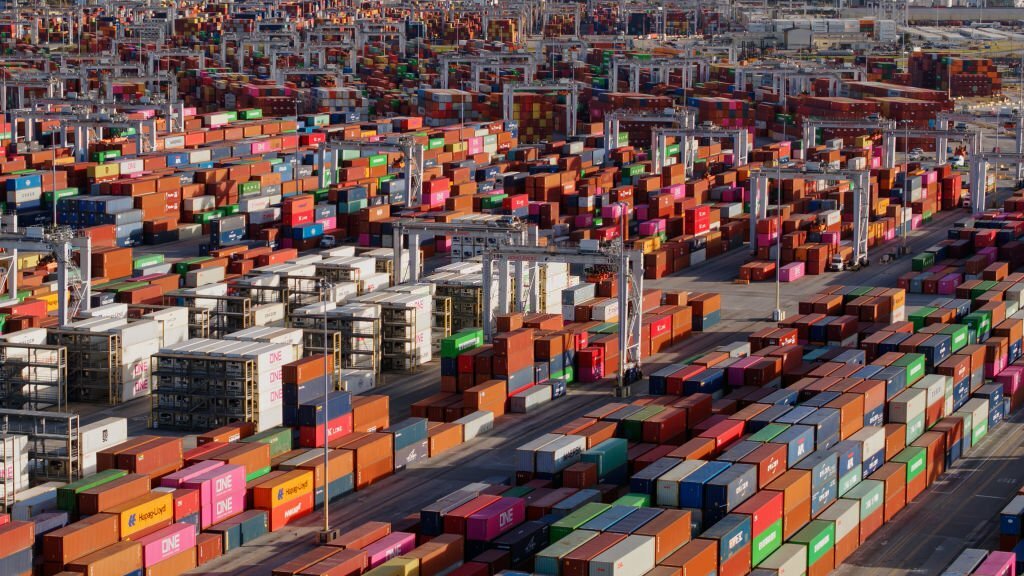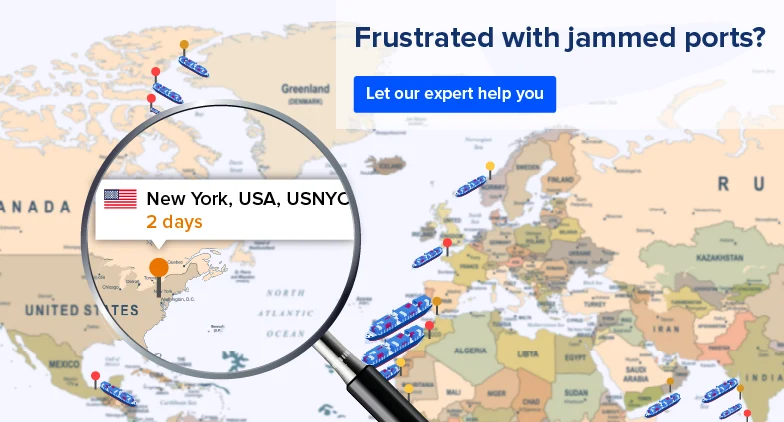The Port of Savannah: Empowering Global Trade through Innovation and Efficiency
Introduction
The Port of Savannah, nestled along the picturesque coastline of Georgia, stands tall as a beacon of maritime excellence and a driving force behind America’s international trade. Renowned for its cutting-edge infrastructure, strategic location, and commitment to efficiency, the port has earned its place as one of the fastest-growing and most efficient ports in the United States. In this blog, we will delve into the remarkable journey of the Port of Savannah, exploring its rise to prominence, cargo-handling capabilities, economic significance, sustainability initiatives, and the innovative strategies that set it apart in the global shipping landscape.
A Path to Prominence
The history of the Port of Savannah is a tale of foresight and vision. Established in 1733, Savannah’s port began as a strategic outpost for colonial trade. Over the centuries, the city evolved into a bustling hub of commerce, attracting merchants and industries seeking access to the Southeastern United States and global markets.
In recent decades, the Port of Savannah experienced exponential growth, fueled by investments in state-of-the-art infrastructure and a proactive approach to fostering international trade. Its strategic location along the Savannah River and its deep-water access make it an ideal gateway for imports and exports, further enhancing its competitive edge.
Cargo-Handling Capabilities
The Port of Savannah boasts impressive cargo-handling capabilities, cementing its position as one of the largest container ports in the United States. Annually, the port handles millions of TEUs of containerized cargo, making it a critical link in America’s supply chain.
The Savannah Harbor Expansion Project (SHEP) has played a pivotal role in enhancing the port’s capabilities by deepening the harbor and accommodating larger vessels. As a result, the port can now handle mega-container ships, further bolstering its appeal to major shipping lines and global businesses.
The port’s Garden City Terminal, a technological marvel, is equipped with automated equipment and advanced systems that streamline operations and optimize efficiency. This modern terminal can process thousands of containers daily, ensuring seamless cargo movement and reducing turnaround times for vessels.
Powering Economic Growth
As one of the largest economic drivers in Georgia, the Port of Savannah plays a central role in generating employment and fostering economic growth in the region. Its strategic location connects industries in the Southeast to global markets, attracting businesses and manufacturers to establish distribution centers and supply chain operations near the port.
The port’s influence extends far beyond the state of Georgia, serving as a crucial gateway for international trade in the Southeastern United States. Savannah’s strategic partnerships with neighboring states, such as Alabama, Tennessee, and South Carolina, enhance regional connectivity and contribute to the economic prosperity of the broader Southeastern region.
Sustainability and Environmental Stewardship
The Port of Savannah is not only committed to economic growth but also to environmental sustainability. By embracing green initiatives and eco-friendly practices, the port seeks to reduce its ecological impact and promote responsible maritime operations.
Environmental stewardship is at the forefront of the port’s operations, with measures in place to conserve energy, reduce emissions, and minimize waste. Additionally, the port invests in innovative technologies that prioritize sustainability, such as electrified cranes and the use of alternative fuels.
Savannah’s commitment to sustainability has earned it recognition and accolades, positioning it as a model for other ports striving to balance economic growth with environmental responsibility.
Innovations for the Future
The Port of Savannah’s forward-looking approach to innovation has been instrumental in its success. By investing in cutting-edge technologies, digitalization, and supply chain optimization, the port continuously enhances its operational efficiency and customer experience.
As e-commerce continues to reshape global trade, Savannah’s port has embraced emerging trends and technologies to cater to the evolving needs of businesses and consumers. By prioritizing digitalization and enhancing its logistics capabilities, the port remains agile and ready to capitalize on emerging opportunities in the digital era.
Security and Compliance
Security and compliance are of paramount importance at the Port of Savannah to ensure safe and secure operations. The port rigorously follows security measures outlined by the U.S. Coast Guard and the Customs and Border Protection (CBP) to prevent security breaches and potential threats.
Strict access control, vessel inspections, and advanced cargo screening processes are integral components of Savannah’s security protocols. The port works closely with law enforcement agencies and industry partners to maintain a robust security framework.
In terms of compliance, the Port of Savannah adheres to various international regulations and standards, including those related to environmental protection, safety, and customs procedures. Its commitment to compliance ensures that cargo is handled responsibly, and trade operations remain transparent and reliable for stakeholders.
Interesting Facts about the Port of Savannah:
The Port of Savannah, known as “Georgia’s Ports,” consists of two major facilities: the Garden City Terminal and the Ocean Terminal. The Garden City Terminal is one of the largest single-operator container terminals in North America.
The port’s Garden City Terminal features electrified rubber-tired gantry cranes, which are eco-friendly and contribute to reduced emissions, exemplifying Savannah’s commitment to sustainability.
The Port of Savannah is a major hub for U.S. trade with Asia, Europe, and Latin America, offering direct connections to over 200 ports worldwide.
The port’s strong rail and road connectivity allows for efficient transportation of cargo to major markets across the United States, extending its reach beyond the immediate region.
Savannah’s port has seen record-breaking growth in recent years, with consecutive years of increased container volumes, showcasing its position as a dynamic player in the global shipping industry.
The Georgia Ports Authority has invested significantly in the Savannah Harbor Expansion Project (SHEP), deepening the harbor to accommodate larger vessels and boost the port’s capacity for future growth.
The Port of Savannah’s logistics expertise and efficient operations have earned it numerous accolades, including recognition as the top U.S. port for the export of containerized agricultural goods.

